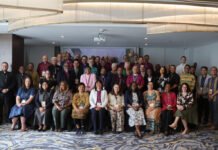Washington, DC – The United States Commission on International Religious Freedom (USCIRF) today released the following new report:
Blasphemy Laws in Nigeria – The increasing enforcement of blasphemy laws enshrined in Nigeria’s criminal and Shari’a codes poses a significant risk to religious freedom for Nigerians, especially religious minorities and those who espouse unpopular or dissenting beliefs, worldviews, or religious interpretations. This policy update describes Nigeria’s blasphemy laws in social and political contexts. It describes both penal and Shari’a codes in Nigeria that criminalize blasphemy, as well as high-profile blasphemy cases in recent years. The report highlights the problematic impacts these cases have on freedom of religion or belief for Nigerians. The findings of the report conclude with a recommendation for the U.S. government to support a national dialogue on combatting religious intolerance without restricting freedom of speech under the law, as called for in UN Human Rights Council (UNHRC) Resolution 16/18 (2011). It also highlights several interim policy options for protecting the rights of religious minorities and individuals with dissenting worldviews as the needed civic dialogue unfolds.
In its 2022 Annual Report, USCIRF recommended that the U.S. State Department designate Nigeria as a Country of Particular Concern (CPC) for engaging in and tolerating systematic, ongoing, and egregious religious freedom violations. In September 2022, USCIRF published a policy update and hosted a hearing on the intersection of religious freedom and violence in Nigeria and how the U.S. government can adjust its policy to address atrocity risk and violence. In June 2022, USCIRF conducted a research delegation to Nigeria and published a USCIRF Spotlight Podcast episode detailing the visit’s findings and takeaways.



